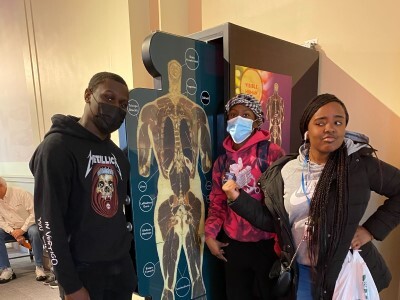Reimagining Assessment
Convergence of Credentials: How Corporations and Colleges Are Teaming to Skill Up the Technology Workforce
Topics

Educators are rethinking the purposes, forms, and nature of assessment. Beyond testing mastery of traditional content knowledge—an essential task, but not nearly sufficient—educators are designing assessment for learning as an integral part of the learning process.
To ensure the relevance of their educational programs, colleges need to design their curriculum more rapidly, at the level of modules and lessons rather than degrees.
The pace of change in today's workforce is outstripping the pace of traditional modes of learning. This is especially true in a job market that is increasingly shaped by demand for fast-evolving technology skills in areas such as coding, cybersecurity, data analytics, and cloud computing.
In the past, software was developed and released on a regular cycle. About every 18 months, manufacturers released upgraded products on CDs or disks. However, cloud computing, agile development and the information economy have disrupted the cycle. With cloud-based applications (also called software-as-a-service or SaaS), software companies now release new or updated products every 60 days or even more frequently.
As a result, the shelf life of educational programs—particularly those that are professionally focused—is declining dramatically. Many industry-based providers offering various forms of professional certifications or certificates are rushing to fill this gap. To ensure the relevance of their educational programs and their outcomes, colleges and universities need to both design and refresh their curriculum more rapidly and to think more nimbly, at the level of modules and lessons rather than degrees.
New Microcredential Models Emerging as Badges Come of Age
Spawned by the Open Badge standard developed by Mozilla in partnership with the MacArthur Foundation and the Bill & Melinda Gates Foundation, the digital badging movement has attracted a great deal of attention in recent years as both higher education institutions and companies experiment with badge offerings. Often, badges have been discussed as alternatives to traditional degrees and certificates. While badges can be excellent substitutes to traditional credentials in some cases, it is important to recognize their power in signaling competency (that is, evidence of an achievement and specific information on skills) in ways that can also complement and enhance what degrees provide.
Badges show skills at the "nano" level, allowing a badge earner to automatically create an online digital résumé that displays specific skills and their recency. For example, at IBM, badges are often issued when a new version of IBM technology is released. Badge earners can instantly and easily show an employer a résumé with his or her latest skills. More than that, badges make it easy for badge issuers to unbundle and modularize their traditional credentials (e.g., degrees), with more-informative, job-aligned, and granular signals of employability.
In this way, badges can help a candidate create a stack of credentials that can be remixed for different audiences. A job seeker can highlight a specific portfolio of badges (or "skill stack") for different job opportunities. These stacks are also showing promise as a way to translate industry knowledge into academic credit. Beyond just a piece of paper or hard-to-define practical comprehension, what is significant about badges is that they result in a secure URL with a verifiable, detailed transcript, adding further credibility and validity to the skills that the badge represents.
IBM + Northeastern: Digital Badges Converge with Traditional Credentials
With more than 1,100 badge offerings in areas ranging from design thinking and project management to analytics, IBM's Digital Badge Program has generated significant momentum. IBM has issued more than 600,000 badges to its employees and customers who recognize their value as a signal of employability and a way to demonstrate current skills and readiness.
More than 54 percent of IBM employees have earned badges since the program formally launched in 2016, and the program has created a dynamic talent database in more than 195 countries. Significantly, 92 percent of those who have earned IBM badges report that they have been a useful career tool.
As the pace of change in the workforce continues to accelerate and the availability of online learning content and services grows, the boundaries between workplace skills and traditional academic credentials will blur.
Northeastern University—a top-ranked global research university recognized for its deep engagement with employers via experiential learning—recently announced a collaboration with IBM that made it the first university to recognize IBM digital badge credentials toward graduate degree programs and certificates, providing a seamless pathway from workplace learning to traditional academic credentialing. This articulation of badge-certified industry knowledge into prior-learning credit followed a rigorous mapping of the IBM badge curriculum against Northeastern's existing course offerings.
Northeastern faculty worked closely with IBM course developers to develop this map by examining topics covered and details about the learning experience and assessment requirements. The IBM + Northeastern program launched with an initial focus on project management badges issued to IBM employees and badges associated with IBM's Cognitive Class, a free online learning center where anyone (IBM employees and others) can enroll in data science and big data courses to earn digital credentials. For example, Cognitive Class badge holders who earn an average of 85 percent or higher in the Cognitive Class Analytic Technologies competency modules will be awarded with one elective course (totaling 3 credits) advanced standing in Northeastern University's Master of Professional Studies in analytics program, as well as an expedited enrollment process. (Learn more about applying IBM badges to Northeastern University's advanced graduate standing.)
This simple concept provides significant benefits for both the university and the industry partner. Northeastern University can recruit students from a talent pool that already possesses industry knowledge, a pool that may represent a white-space opportunity for the institution. The university can also point its students to IBM courses to earn badges on the latest technologies. Northeastern University will award those students academic credit as an incentive. IBM—and its customers—benefit from an expanded pool of talent from a top-ranked institution that already has the verified skills that companies are seeking.
Yet there's another significant benefit to graduates: IBM's badges are powered by Pearson's Acclaim platform, which means that every IBM badge contains direct links to job openings. Badge earners can simply click on their badge's embedded skills tags to open a list of opportunities by salary, title, and location and then drill down to individual job listings to apply.
By Verifying Relevant Skills, Badges Boost Employability (or, A Win-Win for Academia and the Workforce)
Current and prospective badge holders and stakeholders throughout the workplace benefit from the impact on employability. Northeastern University students can automatically generate a digital résumé showing prospective employers their industry knowledge. Badges serve as a signal to hiring managers that certain candidates are prepared for the job, an important differentiator in a competitive job market. As digital badges become more connected to the data embedded in professional social networks (such as LinkedIn and other talent databases), badge data will also ultimately help enable better job matching and talent search.
As the pace of change in the workforce continues to accelerate and the availability of online learning content and services grows, the boundaries between workplace skills and traditional academic credentials will blur. While universities have been transferring academic credit and engaging in prior-learning assessment for many decades, new attention is being brought to the idea that measures of knowledge and skill should be portable across contexts. This is exemplified by the current competency-based education movement at both the K–12 and postsecondary levels, which is itself a direct response to the need for more relevant academic offerings that lead to employability.
However, digital badges and other forms of industry-based microcredentialing needn't be positioned only as "disrupters" of the degree ecosystem. Instead, collaborations such as that of IBM and Northeastern University are among the first in a coming wave of creative partnerships aiming to eliminate the gap between learning and work.




